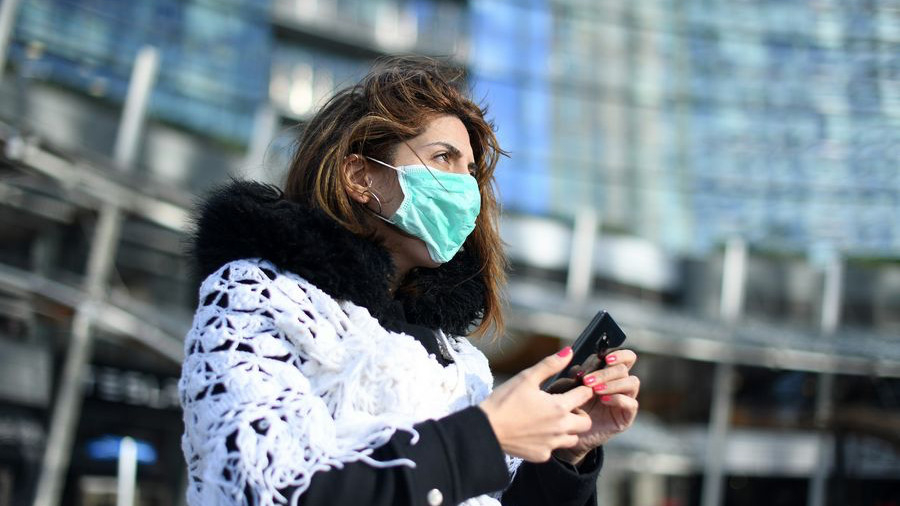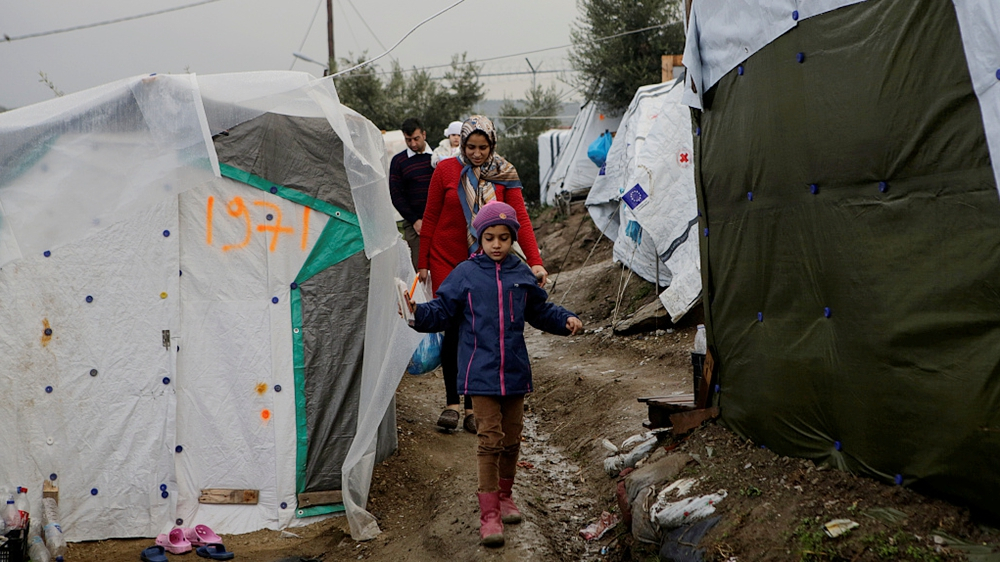
Editor's note : CGTN's First Voice provides instant commentary on breaking stories. The daily column clarifies emerging issues and better defines the news agenda, offering a Chinese perspective on the latest global events.
Europe has a lot on its plate now.
Fear spreads as an increasing amount of new cases of the COVID-19 are being confirmed in more European countries; to add more oil on the fire, Turkish President Recep Tayyip Erdogan announced that he is opening its border to Syrian refugees.
It's not like the economy is going great now. For the last quarter of 2019, the eurozone grew at only 0.1 percent, the slowest rate since early 2013. And the bottom line seems yet to come as disruptions to supply chains induced by the coronavirus continue to pose threats to the EU economy.
This is a major test for EU leadership, one that might further shape EU politics and identities like the refugee crisis and Brexit.
The free movement of people and goods is at the core of a collective EU identity. But this consensus has been repeatedly challenged by the refugee crisis in 2015, when migrants were regarded as low skilled people who were only "stealing" jobs while enjoying better social benefits.
It was during the crisis some EU member countries introduced border check measures to control the flow of migrants. Even now, six countries – Germany, France, Austria, Denmark, Sweden and Norway – have maintained those checks.
While the refugee issue still hanging in the air, the coronavirus outbreak seems to provide nationalists and right-wing parties with ammunition to make more fuss about the border issue.

Migrants make their way among tents at a makeshift camp, on the island of Lesbos, Greece, November 22, 2019. /VCG
French far-right politician Marine Le Pen is calling for "control of our borders." Austria's far-right interior minister Herbert Kickl questioned the parliament on Thursday, asking "How long have you known that the coronavirus was on the march towards Europe and therefore also Austria?" The language gives the audience a quick flashback to three years ago when populists linked crime and illness to migrants. And this time, it is the virus that prepares to "march" towards Europe.
EU experts have warned that closing borders could be "ineffective" and even counterproductive, as potential patients could go unchecked and continue to spread the virus. There has been the discussion to suspend the Schengen Agreement temporarily. But the European Union has refused the possibility.
If closing borders is not an option, then the EU has to come up with a much more effective system that would prevent the COVID-19 from further spreading. In only one week, confirmed coronavirus infections have surpassed 1,000 in Italy.
Although the discussion of border control is once more on the table, the current "virus crisis" is not like the refugee issue in that the latter is much more complicated tangled with economic, geopolitical and historical elements. Europe was forced to confront its colonial past, and its response was a wake-up call to many how the "borderless" ideal has its dark side. It is almost a dead knot that requires a more fundamental structural change inside EU and cooperation with Middle Eastern countries and America.
The current outbreak is an external challenge which would make it easier to play the victim card, but this would be more inexcusable if not handled well. As it is a direct test to the EU bureaucracy, it all boils down how officials can act swiftly and effectively.
Each country has its own responsibility to take action in the healthcare area to combat the virus. But it is up to the EU to make sure these efforts are coordinated, and information on the disease is shared. It also has the duty to provide advice to countries that still have open borders on how they should act on a national level.
And there's also a question on the economy. The current outbreak has taken a heavy toll on northern Italy, Lombardy and Veneto. Both are wealthy areas whose economic output almost accounts for one-third of Italy's GDP and 40 percent of the country's exports. The financial system of the EU also urgently needs to be prepared for disruptions on economic activities and supply chains, against an already sluggish economy.
The EU will come through the outbreak with a much stronger or weaker collective identity, and it is all about leadership and actions.
Scriptwriter: Zhao Yuanzhen
(If you want to contribute and have specific expertise, please contact us at [email protected].)
 简体中文
简体中文

